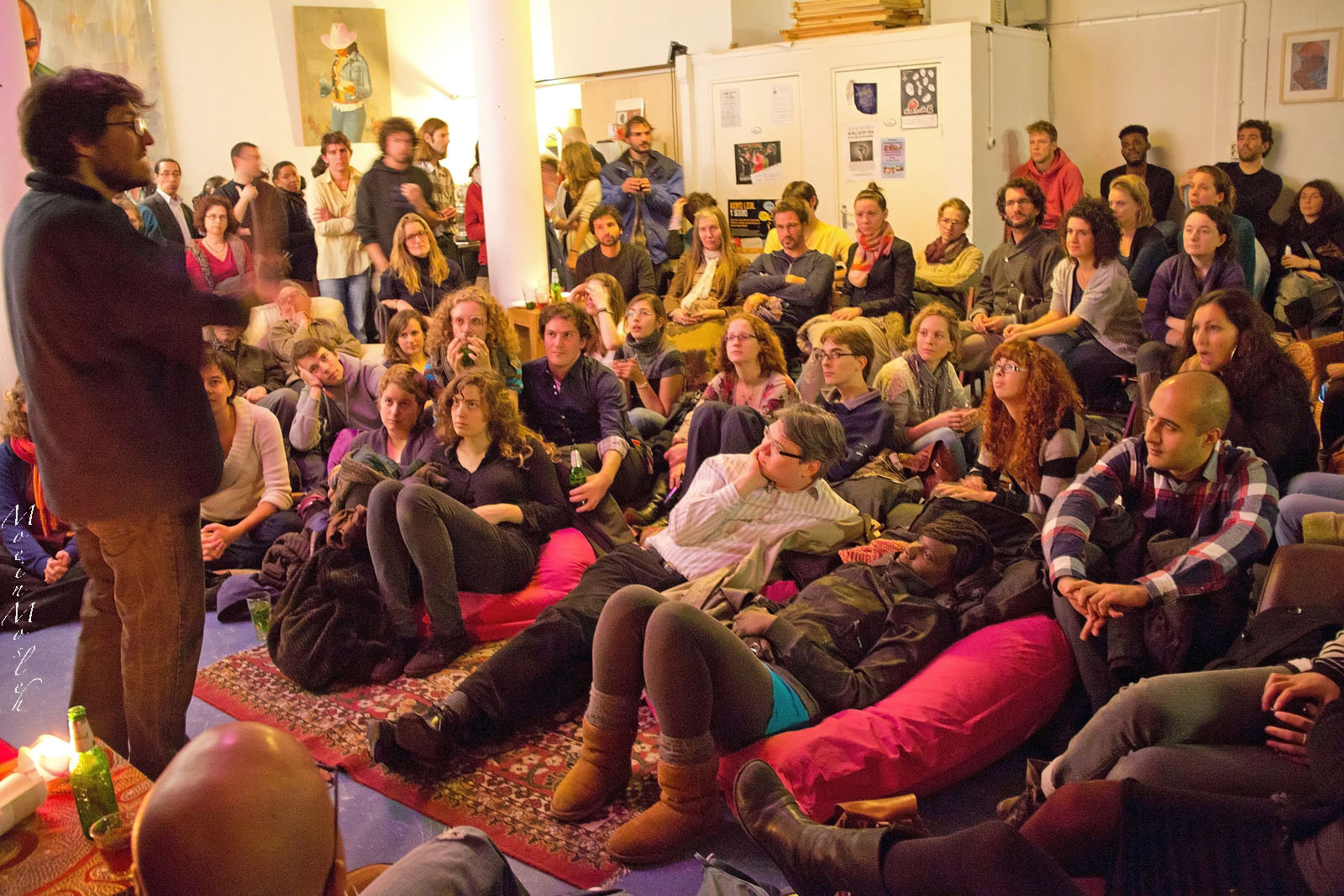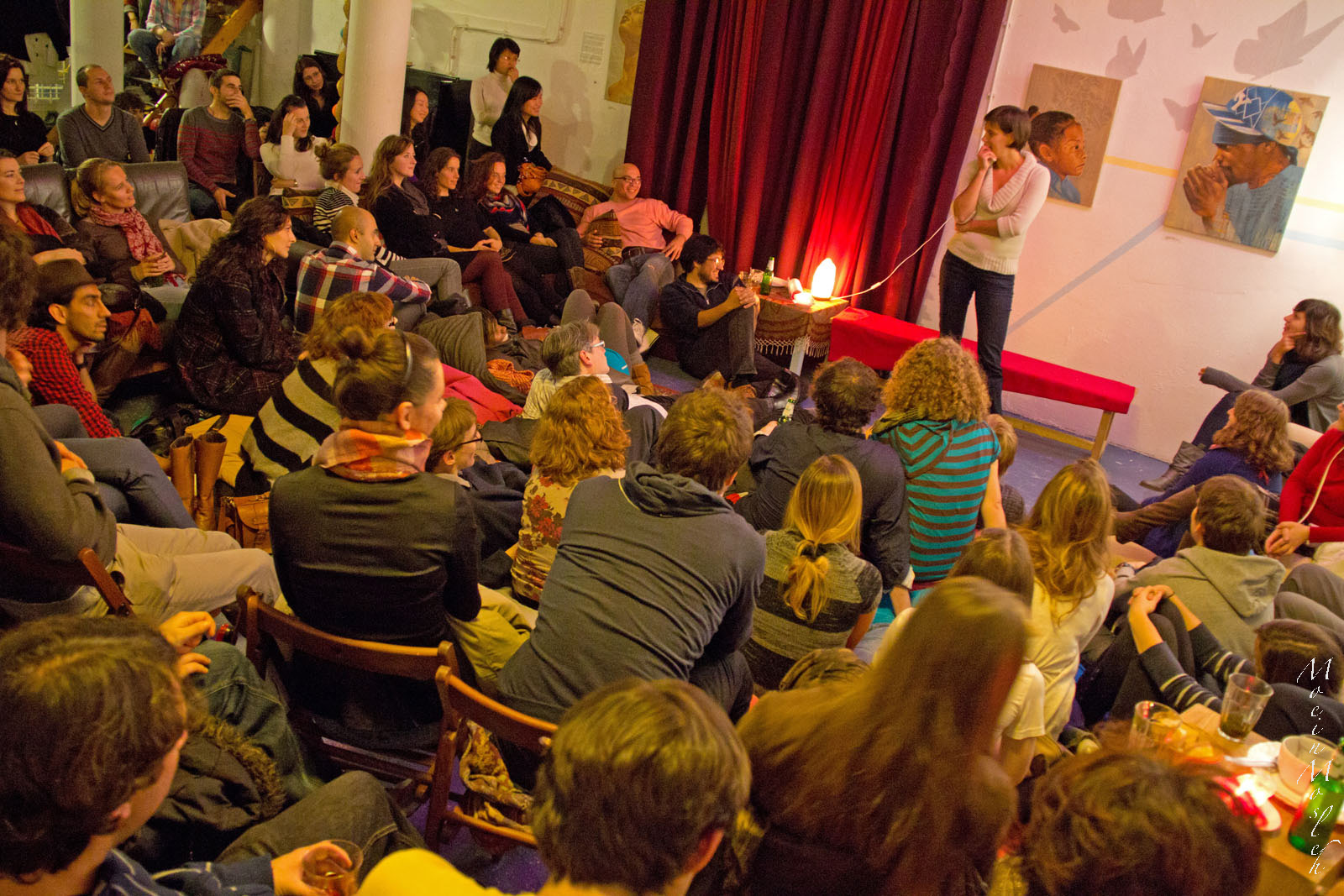Category: Storytelling
This American Life
One of the most incredible examples of storytelling in the media is the radio show “This American Life”
It is not only very well written, but also shows that a good story doesn’t need much of flashy effects and when told well also doesn’t need to be too short to keep the audience attention. Episodes of This American Life are an hour long and often have little in the way of music to accompany the voice telling the story.
If you don’t know This American Life, go to their website. They’ve got hundreds of episodes up.
But the main reason to post about This American Life is that Ira Glass, the guy who makes the show, has a series of videos up on Youtube, where he talks about the art of storytelling for Radio. Whether you are a storyteller for radio or not, or a storyteller at all. These interesting and important points to listen to.
[youtube=http://www.youtube.com/watch?v=loxJ3FtCJJA]
Storytime #2: What is storytelling?
What is storytelling? It’s a question I’ve asked myself many times. I believe it’s an important question, if we are to revive or reinvent the art of storytelling, as Mezrab is trying to do. For me personally, storytelling was taking long walks with my dad in the streets Amsterdam while he told tales about his father and grandfathers, heroes and scoundrels who could compete with the heroes of old. For me the storyteller was not someone who had studied theater or writing, it was someone (my father) who had lived, and while living had absorbed events and stories around him, to pass them on later with passion and excitement.
My father, the great storyteller, disagreed. In his stories a storyteller is a serious profession. A special breed of men who studied for years and traveled to make their living. They knew how to entertain a crowd, how preserve and string together the old stories. They would tell their stories in squares and in tea houses. For years I had a mental image of these storytellers without meeting them, until I found some last year. Not in Iran, but in documentary shot in Morocco. Watching these storytellers who populate the squares of many cities in Morocco, together with snake charmers, fortune tellers, strongmen and other miracle workers, provides the mental imagery to go with the stories my dad told me many years ago. But more moving still is the way it portrays the protagonist, a young boy who tries to become a storyteller like his father.
If you speak Dutch, a TV version of the documentary is available online.
If you don’t speak Dutch, look at this trailer in Youtube:
[youtube=http://www.youtube.com/watch?v=-9i8kSUDtFk]
Storytime #1: Molly’s Wedding
Mezrab champions storytelling. Long in the future, when our present has passed from history into myth, Mezrab will be a stocky young hero who rides across the kingdom showing the people the wonders in the world. He will open eyes, comfort hearts and make grown men cry. And our hero will be a popular one because he quests across borders and gathers wonderous treasures from every corner of the globe to share with his chosen people.
Those of you who’ve been to one of our storytelling nights will know that this is true. To become truly legendary, we need to share beyond our whitewashed walls in Oost.
So, here is the first installment of our Storytime series. We’ll be posting audio and videos of some of our favourite stories from our (soon to be) legendary tellers.
So, for a step toward immortality and, more importantly, five minutes well spent, we heartily recommend you listen to the following story, be the lovely Molly.
[soundcloud url=”http://api.soundcloud.com/tracks/34640785″ iframe=”true” /]
We’d also like to give a special thanks to Moein Mosleh for the wonderful photographs in this post.


